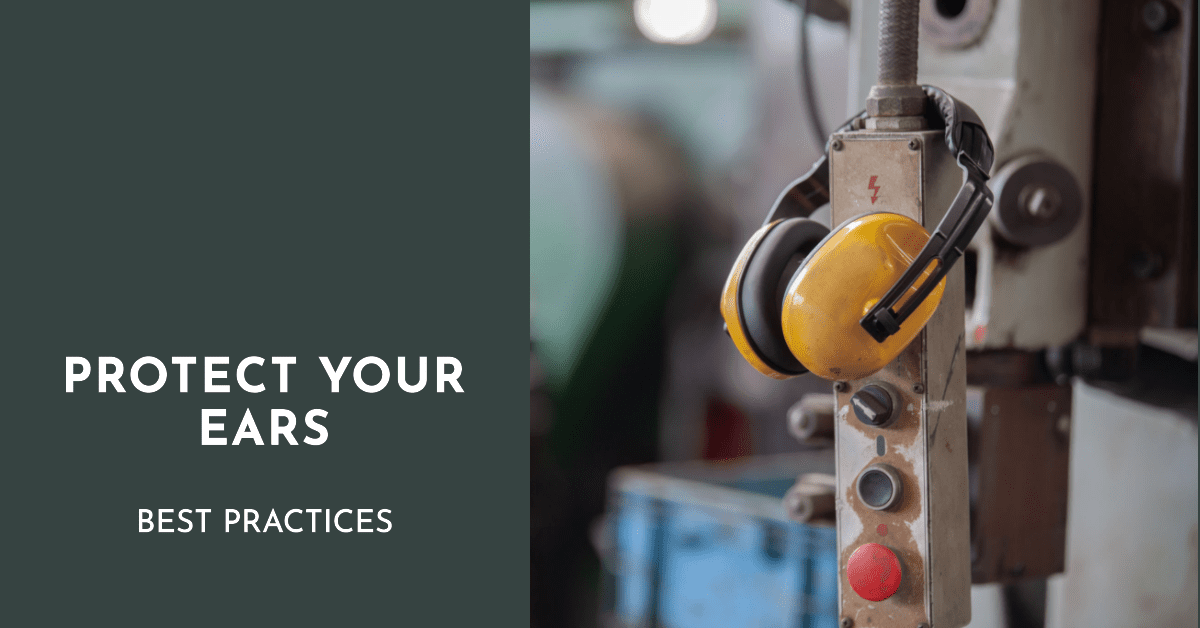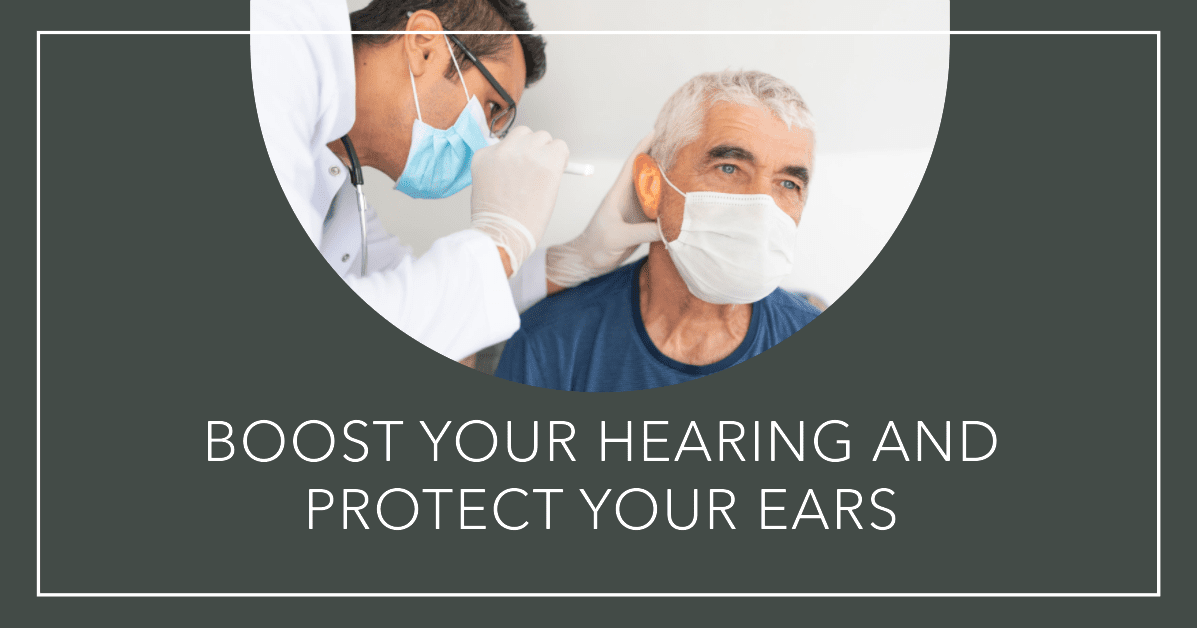In a world where conversations, music, and ambient noise fill our daily lives, our ears are constantly working overtime to keep up. It’s time to give them the attention they deserve! Introducing ” Expert Advice on Boosting Your Hearing and Protecting Your Ears for Life,” the ultimate guide to safeguarding one of our most vital senses.
We’ve tapped into the minds of leading audiologists, healthcare professionals, and hearing aid experts to bring you the latest research, practical tips, and innovative solutions for preserving your hearing and ensuring a lifetime of crystal-clear sound.
Whether you’re an aspiring musician, an avid concert-goer, or simply someone who appreciates the symphony of life, this indispensable resource will open your ears to a world of auditory wellness. So, tune in and turn up the volume, because your journey to better hearing begins now!
Understanding Hearing Loss And Its Causes
Hearing loss is a common condition that affects millions of people worldwide. It can be caused by a variety of factors, such as aging, exposure to loud noises, infections, and certain medications. Understanding the different types of hearing loss and their causes is the first step toward prevention and treatment.
Sensorineural hearing loss is the most common type, accounting for approximately 90% of all cases. It occurs when there is damage to the inner ear or the auditory nerve, which sends sound signals to the brain. This damage can be caused by aging, exposure to loud noises, genetic factors, and certain illnesses.
Conductive hearing loss, on the other hand, results from a problem with the outer or middle ear that prevents sound from reaching the inner ear. This type of hearing loss can be caused by ear infections, blockages (such as earwax buildup), or abnormalities in the ear’s structure. Finally, mixed hearing loss is a combination of both sensorineural and conductive hearing loss.
Aside from these primary types, there are also other causes of hearing loss, such as sudden sensorineural hearing loss (SSHL), which occurs without warning and can be caused by infections, head injuries, or autoimmune diseases.
Another type is noise-induced hearing loss (NIHL), which is caused by exposure to loud sounds over time or a one-time exposure to extremely loud noise. By understanding the various causes of hearing loss, you can take the necessary steps to protect your hearing and seek treatment if needed.
Importance Of Early Detection And Prevention
Early detection and prevention of hearing loss are crucial to maintaining good hearing health throughout your life. Undiagnosed and untreated hearing loss can lead to social isolation, depression, cognitive decline, and even an increased risk of falls and accidents. By detecting hearing loss early, you can take action to prevent further damage and improve your quality of life.
Routine hearing screenings are essential for early detection, especially for children and older adults. Children should receive hearing screenings at birth, and any concerns about their hearing should be addressed promptly.
For adults, it’s recommended to have a hearing test at least once every decade until age 50, and every three years thereafter. If you have a family history of hearing loss or are frequently exposed to loud noises, you may need more frequent screenings.
Prevention is just as important as early detection. By adopting healthy hearing habits, such as protecting your ears from loud noises, keeping your ears clean, and avoiding ototoxic medications (drugs that can damage your hearing), you can minimize your risk of developing hearing loss. Additionally, maintaining a healthy lifestyle, including regular exercise and a balanced diet, can contribute to better overall hearing health.
Best Practices For Protecting Your Ears
Protecting your ears from potential damage is essential for preserving your hearing. There are several best practices you can follow to ensure your ears stay healthy and functioning at their best.

First, be mindful of the volume when listening to music, watching TV, or using headphones. The World Health Organization (WHO) recommends keeping the volume below 85 decibels (dB) and taking regular breaks to give your ears a rest. If you’re frequently exposed to loud noises at work or during recreational activities, consider wearing earplugs or noise-canceling headphones to protect your ears from excessive noise.
Next, keep your ears clean and free from excessive wax buildup. While earwax plays a role in protecting your ears from infection, too much can lead to hearing loss. Avoid using cotton swabs or other objects to clean your ears, as they can push wax further into the ear canal and potentially cause damage. Instead, opt for over-the-counter ear drops or consult a healthcare professional for proper ear cleaning methods.
Finally, maintain your overall health, as certain medical conditions, such as diabetes, cardiovascular disease, and obesity, can increase your risk of hearing loss. By eating a balanced diet, exercising regularly, and managing any chronic conditions, you can help protect your ears and maintain good hearing health.
Tips For Improving Your Hearing
While hearing loss is often irreversible, there are several tips you can follow to improve your hearing and make the most of your remaining auditory function.
First, practice active listening by focusing on the sounds around you and trying to identify their sources. This can help train your brain to better process and interpret sounds, especially in noisy environments. Additionally, consider incorporating activities like meditation and mindfulness exercises into your daily routine, as they can help improve your concentration and listening skills.
Next, strengthen your auditory processing skills by engaging in activities that challenge your hearing, such as listening to audiobooks, podcasts, or music with complex melodies and rhythms. You can also try practicing with hearing exercises and apps designed to improve your listening skills and help you better understand speech in noisy environments.
Lastly, don’t be afraid to ask for help or use assistive listening devices, such as hearing aids, FM systems, or smartphone apps, to enhance your hearing experience. These tools can make a significant difference in your ability to communicate effectively and navigate the world around you.
Expert Advice On Hearing Aids And Other Assistive Devices
Hearing aids are an essential tool for many individuals with hearing loss, helping to amplify sounds and improve overall communication. However, selecting the right hearing aid can be a daunting task, as there are numerous styles, features, and price points to consider.
To help you make an informed decision, we’ve gathered expert advice on choosing the right hearing aid for your needs.
First, consult a qualified audiologist or hearing care professional who can evaluate your hearing loss and make personalized recommendations based on your specific needs and lifestyle.
They can also help you navigate the various types of hearing aids, such as behind-the-ear (BTE), in-the-ear (ITE), in-the-canal (ITC), and completely-in-the-canal (CIC) models.
Next, consider the features you value most in a hearing aid, such as directional microphones, rechargeable batteries, telecoils, and Bluetooth connectivity. Keep in mind that more advanced features often come with a higher price tag, so it’s essential to weigh the benefits against your budget.
In addition to hearing aids, there are other assistive listening devices available, such as personal amplifiers, FM systems, and infrared systems. These devices can be particularly helpful in challenging listening situations, like classrooms, theaters, and places of worship.
Your audiologist or hearing care professional can help you determine which assistive devices may be beneficial for your specific needs.
Managing Tinnitus And Other Hearing-Related Conditions
Tinnitus, or the perception of ringing, buzzing, or hissing sounds in the ears, is a common hearing-related condition that affects millions of people worldwide. While there is no cure for tinnitus, there are several strategies you can implement to help manage and alleviate its symptoms.
One of the most effective ways to manage tinnitus is through sound therapy, which involves using external sounds to mask or distract from internal noise. This can be achieved with white noise machines, fans, or even smartphone apps designed specifically for tinnitus relief. Some individuals also find relief through relaxation techniques, such as deep breathing, meditation, and progressive muscle relaxation.
In some cases, tinnitus may be a symptom of an underlying condition, such as hearing loss, ear infections, or TMJ disorders. By addressing the root cause, you may be able to alleviate your tinnitus symptoms. Consult with a healthcare professional or audiologist for a thorough evaluation and personalized treatment plan.
Aside from tinnitus, other hearing-related conditions, such as hyperacusis (sensitivity to certain frequencies and volume levels) and auditory processing disorder (difficulty processing and interpreting auditory information), can also impact your hearing experience.
It’s essential to consult with a hearing care professional to receive a proper diagnosis and tailored treatment plan for these conditions.
How To Choose The Right Audiologist Or Hearing Care Professional
Choosing the right audiologist or hearing care professional is crucial to ensuring you receive the best possible care for your hearing needs. Here are some factors to consider when selecting an audiologist or hearing care professional:
First, verify their credentials and experience. Audiologists should have a doctorate or master’s degree in audiology from an accredited program and be licensed in your state. Hearing instrument specialists should have appropriate certification and training to fit and dispense hearing aids.
Next, consider their communication style and patient-centered approach. A good audiologist or hearing care professional should take the time to listen to your concerns, answer your questions, and explain your options in a way that is easy to understand.
They should also involve you in the decision-making process and prioritize your individual needs and preferences.
Additionally, look for a provider who stays up-to-date with the latest advancements in hearing technology and treatment options. This can help ensure you receive the most effective care possible for your hearing needs.
Finally, inquire about their services and the types of hearing aids they offer. A comprehensive practice should provide a range of services, from diagnostic testing to hearing aid fittings and follow-up care. It’s also essential to have access to a variety of hearing aid brands and models, as this will give you more options when selecting the right device for your needs.
Maintaining Good Hearing Health Throughout Your Life
Preserving your hearing health is a lifelong commitment that requires attention and care. By following these tips and recommendations, you can maintain good hearing health and enjoy a lifetime of clear, vibrant sound:
- Schedule regular hearing tests and screenings to monitor your hearing status and catch potential issues early.
- Protect your ears from excessive noise exposure by wearing earplugs or noise-canceling headphones in loud environments.
- Keep your ears clean and free of excessive wax buildup to prevent blockages and hearing loss.
- Manage chronic conditions, such as diabetes and cardiovascular disease, which can impact your hearing health.
- Maintain a healthy lifestyle through regular exercise, proper nutrition, and stress management to support overall hearing health.
- Seek treatment for hearing loss or other hearing-related conditions promptly to prevent further damage and improve your quality of life.
- Stay informed on the latest advancements in hearing technology and treatment options to ensure you receive the best possible care for your hearing needs.
Final Thoughts On Hearing Protection
Your hearing is a precious gift that allows you to experience the world around you fully. By following the expert advice outlined in this guide, you can take proactive steps to protect your hearing, improve your auditory function, and maintain good hearing health throughout your life.
Remember, it’s never too late to start prioritizing your hearing wellness and embracing a lifetime of crystal-clear sound. So, listen up and take action today!

